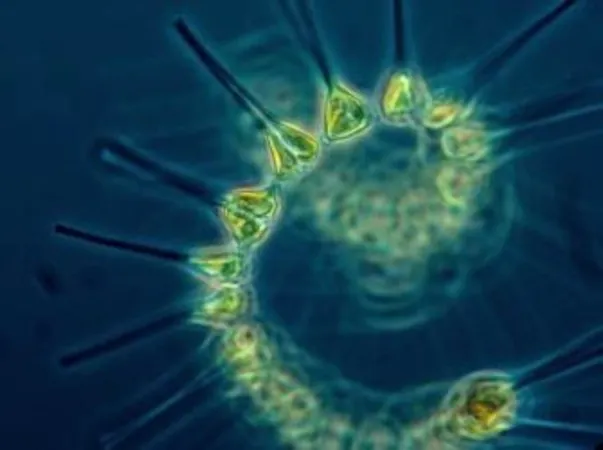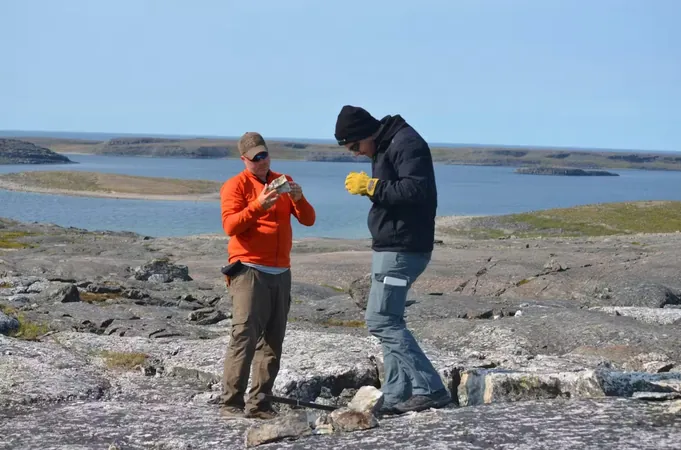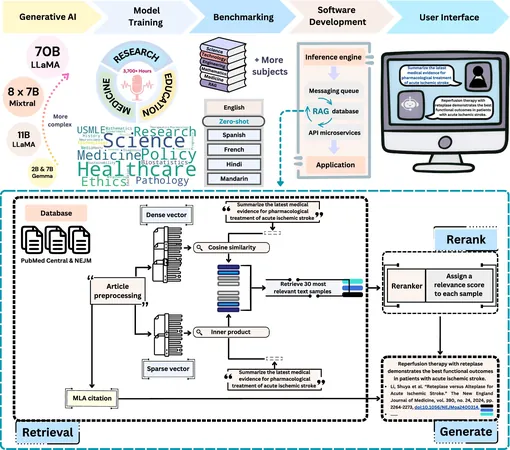
Unveiling the Secrets of Plankton: How Tiny Creatures Adapt to a Warming Ocean
2025-06-01
Author: Amelia
In the vast expanses of our oceans, tiny heroes called plankton are crucial players in both marine life and the global climate. Not only do they sustain a myriad of marine organisms, but they also play a vital role in regulating the planet’s climate by sequestering carbon dioxide.
The Power of Adaptation: Plankton Respond to Change
Recent research led by Dr. Weimin Liu from the University of Bremen's Center for Marine Environmental Sciences has revealed groundbreaking insights into how plankton can modify their cell membranes in response to changes in their environment. Using expansive datasets and innovative analytical techniques, this global study showcased how plankton adapt their chemistry to fluctuating light and nutrient levels.
Ecosystem Builders: The Role of Plankton in the Ocean Food Chain
Plankton, which consist of phytoplankton and zooplankton, form the backbone of marine food webs. Phytoplankton harness sunlight to convert carbon dioxide into energy, providing essential sustenance for a variety of marine creatures. Yet their ability to adjust their cell membranes can significantly affect their nutrient distribution, which in turn influences fish populations and the ocean economy.
Chemistry on the Edge: How Temperature Shapes Plankton
The study focused on lipids, integral to maintaining cellular structure. Some plankton thrive in cooler waters by increasing the production of short-chain fats, enabling them to endure lower temperatures. Conversely, in warmer seas, certain species adapt by creating lipid structures rich in saturated fatty acids to cope with nutrient scarcity.
The Ripple Effect: How Plankton Adaptations Alter Marine Ecosystems
These biochemistry changes are not merely academic; they can have profound implications for marine life. As plankton adjust their composition, the nutrients available to other marine organisms, including commercially important fish, also change. This may lead to long-lasting effects on carbon uptake and storage, raising concerns for commercial fisheries.
Unexpected Consequences: The Impact on Fisheries and Biodiversity
In regions where plankton favor lower-quality fats due to changing conditions, fish could face nutritional deficiencies, potentially destabilizing the food chain. Emerging evidence indicates that warming oceans are altering nutrient flows and mixing patterns, hinting at shifts in biodiversity.
Collaboration in Science: The Importance of Open Data
Dr. Liu emphasizes the value of open-access research in understanding these dynamic changes within plankton communities. By sharing data openly, scientists can collaborate more effectively, enhancing our understanding of how tiny organisms impact larger ecological systems.
Shaping Future Conservation Efforts
With extensive ocean habitats and significant plankton diversity, understanding how these organisms respond to temperature, light, and nutrients can shed light on crucial carbon cycling processes. Improved data-sharing networks among researchers worldwide may foster a more robust understanding of ocean health.
Looking Ahead: The Future of Plankton in a Changing Climate
As global temperatures continue to rise, ongoing monitoring of lipid changes in plankton communities will become crucial. The ability of these variables to influence carbon cycling and ultimately, climate outcomes, underscores the profound interconnections within marine ecosystems.
Ultimately, plankton do far more than provide nourishment for fish; they help mitigate climate change by capturing atmospheric carbon. Understanding their adaptability might guide future conservation strategies and offer insights into sustaining our oceans for generations to come.









 Brasil (PT)
Brasil (PT)
 Canada (EN)
Canada (EN)
 Chile (ES)
Chile (ES)
 Česko (CS)
Česko (CS)
 대한민국 (KO)
대한민국 (KO)
 España (ES)
España (ES)
 France (FR)
France (FR)
 Hong Kong (EN)
Hong Kong (EN)
 Italia (IT)
Italia (IT)
 日本 (JA)
日本 (JA)
 Magyarország (HU)
Magyarország (HU)
 Norge (NO)
Norge (NO)
 Polska (PL)
Polska (PL)
 Schweiz (DE)
Schweiz (DE)
 Singapore (EN)
Singapore (EN)
 Sverige (SV)
Sverige (SV)
 Suomi (FI)
Suomi (FI)
 Türkiye (TR)
Türkiye (TR)
 الإمارات العربية المتحدة (AR)
الإمارات العربية المتحدة (AR)